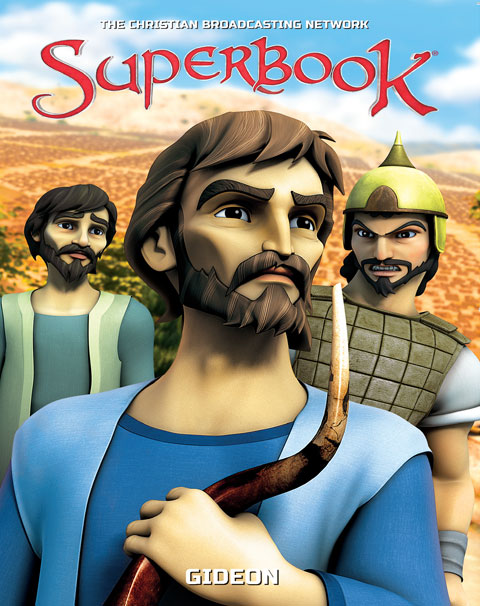59
Jesus His Commandment
- Take heed, and beware of covetousness Luke 12:15 And he said unto them, Take heed, and beware of covetousness: for a man’s life consisteth not in the abundance of the things which he possesseth.
This Primary Bible reference is a unique Bible reference according to the words of Jesus, which best summarizes this step.
All Jesus His steps can be grouped into the Ten Commandments from the Old Testament (Exodus 20).

Direct Bible References
Extra direct Bible references which expands or explain the same step.
- Luke 3:14 And the soldiers likewise demanded of him, saying, And what shall we do? And he said unto them, Do violence to no man, neither accuse any falsely; and be content with your wages. (Author: 'John the baptist')
- Luke 12:16-21 And he spake a parable unto them, saying, The ground of a certain rich man brought forth plentifully: And he thought within himself, saying, What shall I do, because I have no room where to bestow my fruits? And he said, This will I do: I will pull down my barns, and build greater; and there will I bestow all my fruits and my goods. And I will say to my soul, Soul, thou hast much goods laid up for many years; take thine ease, eat, drink, and be merry. But God said unto him, Thou fool, this night thy soul shall be required of thee: then whose shall those things be, which thou hast provided? So is he that layeth up treasure for himself, and is not rich toward God. (Author: 'Jesus')
- Ephesians 5:3-4 But fornication, and all uncleanness, or covetousness, let it not be once named among you, as becometh saints; Neither filthiness, nor foolish talking, nor jesting, which are not convenient: but rather giving of thanks. (Author: 'Paul')
- Ephesians 5:15-16 See then that ye walk circumspectly, not as fools, but as wise, Redeeming the time, because the days are evil. (Author: 'Paul')
- 1 Timothy 6:6-10 But godliness with contentment is great gain. For we brought nothing into this world, and it is certain we can carry nothing out. And having food and raiment let us be therewith content. But they that will be rich fall into temptation and a snare, and into many foolish and hurtful lusts, which drown men in destruction and perdition. For the love of money is the root of all evil: which while some coveted after, they have erred from the faith, and pierced themselves through with many sorrows. (Author: 'Paul')
- Hebrews 13:5 Let your conversation be without covetousness; and be content with such things as ye have: for he hath said, I will never leave thee, nor forsake thee. (Author: 'Unknown')
Indirect Bible References
Extra, more indirect Bible references, relating to the same step.
- Philippians 4:11-13 Not that I speak in respect of want: for I have learned, in whatsoever state I am, therewith to be content. I know both how to be abased, and I know how to abound: every where and in all things I am instructed both to be full and to be hungry, both to abound and to suffer need. I can do all things through Christ which strengtheneth me. (Author: 'Paul')
Example Bible References
In these Bible references you will find examples and testimonies how this step was being executed.
Please click on the Bible Reference to show its corresponding text.
- Ezekiel 28:4-9
With thy wisdom and with thine understanding thou hast gotten thee riches, and hast gotten gold and silver into thy treasures: By thy great wisdom and by thy traffick hast thou increased thy riches, and thine heart is lifted up because of thy riches: Therefore thus saith the Lord GOD; Because thou hast set thine heart as the heart of God; Behold, therefore I will bring strangers upon thee, the terrible of the nations: and they shall draw their swords against the beauty of thy wisdom, and they shall defile thy brightness. They shall bring thee down to the pit, and thou shalt die the deaths of them that are slain in the midst of the seas. Wilt thou yet say before him that slayeth thee, I am God? but thou shalt be a man, and no God, in the hand of him that slayeth thee. (Author: 'Tyrus')
Wisdom Bible References
Wisdom Bible references will relate to one of the Wisdom Literare Books from the Old Testament.
Please click on the Bible Reference to show its corresponding text.
- Proverbs 3:31-32
¶ Envy thou not the oppressor, and choose none of his ways. For the froward is abomination to the LORD: but his secret is with the righteous. (Author: 'Solomon') - Proverbs 28:25
He that is of a proud heart stirreth up strife: but he that putteth his trust in the LORD shall be made fat. (Author: 'Solomon') - Ecclesiastes 6:7-9
All the labour of man is for his mouth, and yet the appetite is not filled. For what hath the wise more than the fool? what hath the poor, that knoweth to walk before the living? ¶ Better is the sight of the eyes than the wandering of the desire: this is also vanity and vexation of spirit. (Author: 'Solomon')
Legend
Bible verses copyright: PUBLIC DOMAIN except in the United Kingdom, where a Crown Copyright applies to printing the KJV. See http://www.cambridge.org/about-us/who-we-are/queens-printers-patent
Click here to see the explanation of the different symbols, Author, OT Law etc.
- A related Bible reference to the step which is negative, something you should not do
- A related Bible reference to the step which is both positive and negative
- A related Bible reference to the step which is positive, something you should do or learn from
- A related Bible reference to the step which is not yet determined positive or negative
- Author: Indicates the known author from this Bible reference
- OT Law nr: Jewish tradition teached that there are 613 commandments or mitzvot in the Torah. We list the Number, based on a chronological order (Genesis, Exodus, Leviticus, Numeri, Deuteronomium).
- Rambam Title: This is the commandment, as an interpretation of Rambam (commonly known as Maimonides)
- Rambam Coding: The coding refers to the commandments layout of Rambam. Rabbi Chafetz Chayim wrote a book with all the commandments which can still be observed today. The book is called 'The Concise Book of Mitzvoth'
- CCA means a positive mitzwe (which can now also be carried out outside of Israel).
- CCN is the negative mitzwe (which can now also be carried out outside of Israel).
- CCI means that this mitzvah can only be performed in the State of Israel.
Who came up with this "613 Mitzvot"?
Rabbi Moshe ben Maimon, His full name was Rabbi Moses Ben Maimon. His name formed the acronym as "The Rambam" was born on the 14th of Nisan 4895 (30th March 1135) and he died on the 20th of Tevet of 4965 (Dec. 13 1204). The Rambam was one of the most saught after individuals of his time. Not only as a Halachic authority, but also within the secular world of kings and sultans, for his vast knowledge of secular medecines was outstanding. When writting the Mishna Torah, Ramban reviewed the Torah's Mitzvot, and he itemized them. He seperated the positive and negative mitzvot, listed them, all 613, and discussed them.
Drawings

Artist: Jenske Visser
Resource Language Settings
Below you will find all kinds of related resources to this step, to help you grow. Resources can be Sermons, Testimonies, Movies, Shortmovies, Songs, Blogs or Books. You can select multiple languages if you like to see those resources in more languages.Do you know more good resources in your language which can be added to this list? Please contact us so we can add it (or register and you can add it yourself!

Superbook

When Joy is called to leadership in a difficult situation, she has to chose between taking the challenge or running scared. Superbook sends Joy, Chris, and Gizmo to a time when Gideon overcomes a difficult battle with the Midianites. This adventure encourages Joy to walk with God and conquer the task at hand.
Watch now on: Superbook

Short Movies
Nick Vujicic - Motivational Minute #5 - Greed

Questions
Share your hearts together by discussing the following questions:
- Is there anything you don't understand within this step?
- Wat appeals to you about all Bible references and resources?
- How do you apply this step in your life or do you experience any boundaries?
- Do you recognize one of the symptoms for greed mentioned in the description?

